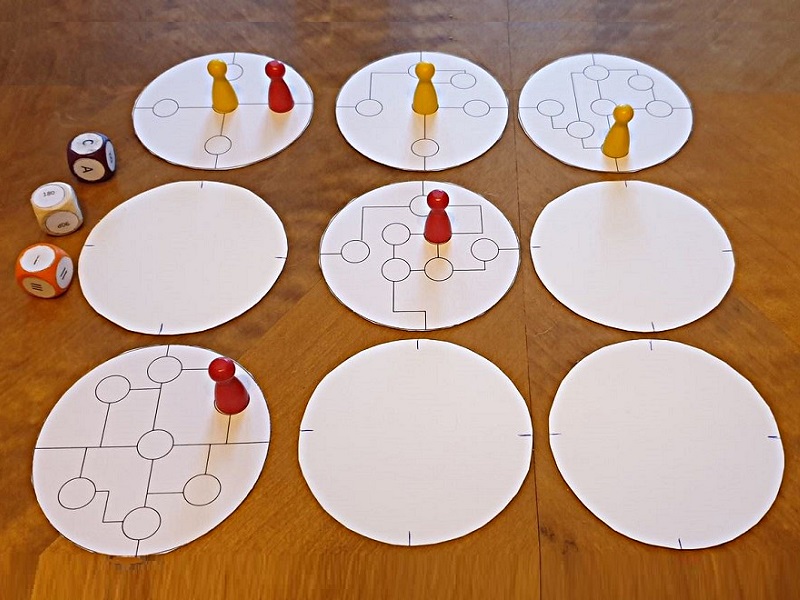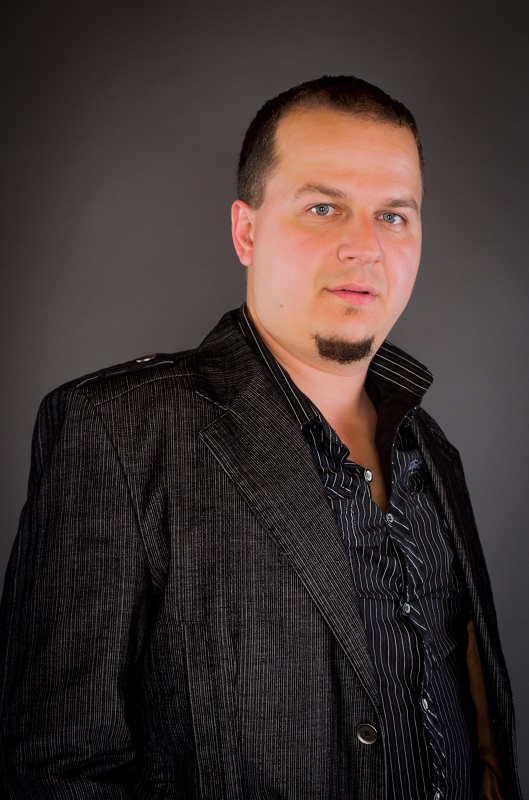| Olimpia Orządała |
Many people who suffered from COVID-19 complain of brain fog. It is a syndrome of neurological symptoms consisting of, e.g. impaired concentration and short-term memory, disorientation, and fatigue. Brain fog can occur in various diseases such as auto-immune diseases, borreliosis, neurosis, or chronic fatigue syndrome. Recently, it is often heard as a complication after suffering from COVID-19. Isolation during the pandemic has caused impairment in cognitive, affective, and social functions in many people.
Tomasz Kopczyński, PhD, from the Institute of Pedagogy, the winner of the “Post-COVID Horizon” call for proposals within the Research Excellence Initiative, along with his team implements an innovative project that aims at studying the therapeutic advantages of analogue games (e.g. card or board games) in the context of COVID-19. It is widely known that games help us to relax, unwind, develop our skills, and broaden our knowledge; additionally, they give us various emotions, including positive and negative ones.
“In education and psychology, the topic of designing games as tools used in preventive healthcare or therapy is a relatively poorly described issue; therefore, we wanted to take a closer look at it,” admits the team leader.
In their research, the scientists use a biofeedback tool, which registers basic physiological and neurophysiological parameters of our bodies.
“The easiest way to explain its operation is on the example of an ordinary thermometer. Biofeedback as a device is its more advanced version; it also registers parameters of our bodies and allows for a clear record of several parameters (heart rate, temperature, GSR, EMG) while performing an activity or at rest. It is either to control these functions (e.g. through calm breathing) or to determine the external stimuli (e.g. music) that may contribute to their desired change. By defining these characteristics with the use of a special software attached to the biofeedback device, we can check how the external factors influence what is happening with our organism and even thoughts; thoughts also influence our physiology,” says T. Kopczyński, PhD.
A biofeedback device is fairly common but it can be surprising for the examined. “One variant of the examination can be a video game. Usually, in order to make the desired changes, we play such a game with a mouse and keyboard, in order to make the desired changes. During the examination, we also try to make a change to an object, move it on the screen, the difference is that we try to do it using one’s thoughts, emotions, or an additional stimulus that influences us. This influence is registered by the device, and the effect is an item’s visible change of position in a video game,” explains the winner of the “Post-COVID Horizon” call for proposals.
Formerly, board games were a common entertainment; however, currently, they have a huge competitor in the form of video games. “For the contemporary generation, computer games are more interesting, real, and at the same time less challenging. Nonetheless, there are exceptions, such as complex simulation games (Farming Simulator 19, Microsoft Flight Simulator, 911 Operator) or strategic games (Civilization, Age of Empires, Frostpunk). If I offer my child to choose one of four activities: going outside, bike ride, playing a simple browser game (Snake, Bubble Shooter, Crazy Juicer) or playing a board game (Dixit, Talisman, Scrabble), it will – unfortunately – choose a browser game,” states the scientist from the University of Silesia. “The reason is simple: the reward system works here rapidly – something happens, and you can instantly see its effects. In my opinion, an analogue game is always a bit more challenging. Obviously, it is an enormous generalisation; the choice of a young player is affected by multiple factors (type of a player, age, game complexity and attractiveness, etc.) It is enough that parents cannot give their children enough time, and then a telephone, tablet, console, TV or YouTube will be the simplest solutions, unfortunately.”

Traditional games may be helpful in treating complications after suffering from COVID-19, in particular when brain fog and short- and long-term memory impairment. “Undoubtedly, games stimulate basic cognitive functions,” says the scientist.
During the pandemic, analogue games experienced a renaissance – social isolation benefited such entertainment. Tomasz Kopczyński, PhD, admits that at the time numerous companies made a profit of approximately 20%. “We can see that people require the ludic element,” says the winner of the “Post-COVID Horizon”.
So far, the scientists have carried out pilot research and designed their original game that is to be tested. Currently, they wait for a professional biofeedback device to be delivered, which will allow for continuing further works. Thanks to the interdisciplinary team, analogue games may be looked at from various points of view. It is also planned to establish collaboration with researchers from abroad.
The project “Post-COVID-19 rehabilitation based on serious games methodology” is implemented by Tomasz Kopczyński, PhD (leader), Andrzej Swinarew, PhD, DSc, Assoc. Prof. and Paweł Janik, PhD, from the Faculty of Science and Technology; Arkadiusz Rojczyk, PhD, DLitt, Assoc. Prof. from the Faculty of Humanities; and Maciej Bożek, PhD, from the Faculty of Social Sciences.
Tomasz Kopczyński, PhD, from the Institute of Pedagogy | Photo from a private gallery of T. Kopczyński, PhD






